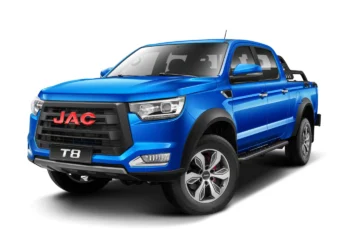Toyota will resume selling the bZ4X, its first mass-produced full-electric vehicle after a recall due to a risk the wheels could lose during usage.
According to Toyota, the production of the electric SUV, which is pitched as Toyota’s answer to the Tesla Model Y and the Volkswagen ID4, will resume tomorrow, October 7, 2022, noting that it has found a fix for the defect.
Toyota Executive Vice President, Masahiko Maeda, disclosed that the automaker will gradually resume bZ4X shipments and will prioritize meeting demand for customers waiting for the car.
Meanwhile, Subaru, a fifth owned by Toyota, also had to recall units of the related Solterra that it jointly developed with Toyota.
Japan’s safety regulator said in June that sharp turns and sudden braking could cause a hub bolt to loosen, raising the risk of a wheel coming off the vehicle, which analysts had said was a simple and inexpensive problem to fix.
Toyota said in a filing with Japan’s transport ministry that it would make sure hub bolts were replaced and properly tightened in new cars.
The company also indicated that it has identified and fixed a potential problem with airbags in the car, making sure that curtain-shield airbags designed to prevent head injuries in a crash were properly installed. That problem had not been identified before.
Toyota recalled 2,700 bZ4X models in June, less than two months after the model was launched, because of a risk of wheels coming loose. Of the 2,700 bZ4X vehicles recalled, 2,200 were earmarked for Europe, 260 for the U.S., 20 for Canada, and 110 for Japan.
Criticisms from Environmental Groups
Toyota has faced criticism from environmental groups and investors who want the company to move faster to adopt battery EVs. Toyota has pushed back, saying it needed to offer car choices to suit different markets and customers.
Hybrid EVs such as the Prius remains far more popular in Toyota’s home market of Japan, and pure EVs accounted for just 1 percent of the passenger cars sold in Japan last year, according to industry data.
Last year, Toyota committed about $30 billion to develop battery electric vehicles. It expects the company’s annual sales of such cars to reach only 3.5 million vehicles by the end of the decade, about one-third of the current annual sales of its gasoline-powered cars.
The global recall affected the Japanese manufacturer’s bZ4X sports utility vehicle, its first effort at a pure battery electric vehicle (EV), after the manufacturer found a problem with the bolts that connect the wheels to the chassis. It is investigating whether the components need to be replaced.
Toyota has been the world’s largest carmaker by sales for the last two years, ahead of Volkswagen. However, unlike its German rival, it has not embraced all-electric technology to the same extent, aiming instead to keep producing orthodox fossil fuel vehicles as well as hybrid electric vehicles that combine a battery with an internal combustion engine.
READ ALSO: aYo Insurance Introduces One-time Annual Premium Cover on Its RwC





















